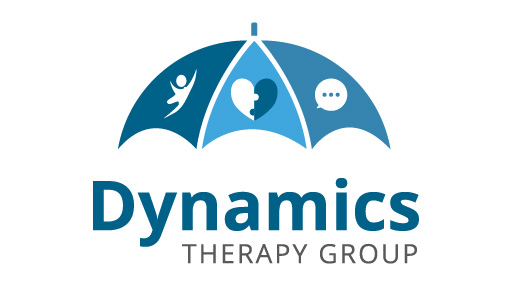
What is Adult Speech Therapy?
Speech Therapy is a treatment to care for and support adults with difficulties in communication, eating, drinking or swallowing.
Who Needs Speech Therapy Intervention?
A Speech Therapist serving the adult population manages both swallowing and communication impairments. A person may require Speech Therapy intervention after sustaining communication or swallowing difficulties following a medical event. This can include acute conditions, such as stroke, traumatic brain injury or long-developing ones that include dementia and Parkinson’s disease. Typically, a referral to a Speech Therapist will be made by a doctor for further management if required.
Swallowing Disorders
A person may require Speech Therapy intervention for swallowing difficulties if these signs are exhibited:
- Choking/Throat clearing during or after eating and/or drinking
- Wet or gurgly sounding voice when eating or drinking
- Pocketing of food in the cheek
- Food or liquid remaining in the mouth after swallowing
- Drooling
- Food and liquid spilling out of the mouth
- Inability to eat specific types of food, such as those that are too hard to chew
- Extra effort or time needed to chew or swallow
- Sensation of food getting stuck in the throat
- Inability to initiate a swallow
- Difficulty coordinating breathing and swallowing
- Shortness of breath while eating or drinking
- Unintentional loss of weight and dehydration
- Recurring hospital admissions for chest infections
Communication Disorders
Following a sudden onset medical event, such as stroke, or long-developing medical conditions, such as Parkinson’s disease or a motor neuron disease, communication disorders in the area of speech, language and/or voice can occur. Typically, if the individual has been hospitalised or is already on follow-up with a medical doctor, they would likely have been referred to a Speech Therapist when a communication difficulty is observed or if highlighted by a family member.
A person may have communication impairments and require Speech Therapy intervention if these signs are exhibited:
- Difficulty understanding others
- Difficulty expressing themselves
- Word-finding difficulties
- Saying the wrong words or sounds
- Saying words that do not make any sense
- Difficulty understanding what they read
- Difficulty writing
- Slurred speech
- Hoarseness
- Soft vocal volume
- Strained voice quality
- Frequent pauses during talking
- Repeating sounds or syllables
A Speech Therapy assessment is required to ascertain if a person has swallowing and/or communication impairment and if Speech Therapy intervention is required.
Benefits of Speech Therapy
In this section, we will cover the benefits of Speech Therapy in some common conditions, such as stroke and motor neuron disease.
How does Speech Therapy benefit people who suffered a stroke?
Depending on the site of the stroke, persons who have a history of stroke may suffer from swallowing and/or communication difficulties.
Where indicated, a swallowing assessment may be conducted to determine if a swallowing impairment is present. If assessed to have a swallowing impairment, the Speech Therapist will ascertain safe-feeding methods and recommendations. These can include modifying diet and fluid consistencies for safer swallowing and in turn, minimising the risk of aspiration – a process in which foreign materials, such as food or fluids, enter the lungs, resulting in a chest infection. If suitable, swallow rehabilitation exercises may also be prescribed to help improve swallow muscle movement and function.
Different types of communication difficulties or disorders can occur depending on the site of a stroke. For example, a person with a left-sided stroke may experience challenges in understanding and/or expressing self with words (can be verbal, written or both). A person with a right-sided stroke, on the other hand, may experience difficulty attending to or staying on topic during a conversation, organising thoughts or sequencing ideas.
The Speech Therapist will conduct a communication assessment(s) in the areas of speech, language, voice and/or fluency, depending on the suspected areas of impairment. Once the severity and characteristics of communication breakdown have been identified, the Speech Therapist would be able to recommend appropriate therapy plans (whether speech, language, etc.) and start the person on their rehabilitation journey. Strategies for communication will also be identified to improve the communication effectiveness and efficiency between the person and communication partners.
In cases where the person is expecting to return to work, the Speech Therapist will also be responsible for working closely with the person and their close communication partners to formulate therapy goals that are relevant to the workplace and monitoring the client’s progress during their transition back to the workplace and thereafter.
What is the Speech Therapist’s role in persons with motor neuron disease?
Motor neuron diseases (MNDs) are a group of diseases that are degenerative. They affect the functions of motor neurons, a type of nerve cell, which are responsible for the voluntary movement of muscles of the body. These muscles are essential in the performance of daily functions, such as walking, dressing, bathing and feeding. Motor neurons are also responsible for more delicate activities, such as eating and drinking (i.e. chewing and swallowing) and talking.
In an MND, nerve cells die and muscles of the body stop receiving voluntary movement messages and start wasting away (or atrophy). This in turn results in increasing difficulty in controlling muscle movements and the ability to talk, walk or breathe may be adversely affected. Different kinds of MNDs affect different types of nerve cells, which results in the degeneration of different functions. Examples of MNDs are Amyotrophic Lateral Sclerosis (ALS), Progressive Bulbar Palsy (PBP), etc.
Speech Therapists support persons with MNDs in the areas of swallowing and communication (more commonly for the area of speech). Not every person with MND will develop speech and/or swallowing difficulties, but many do and particularly in the later stages of the disease.
In the management of swallowing difficulties, the Speech Therapist will conduct swallowing assessments to determine the severity of swallowing disorder, if any, and recommend safe-feeding options and strategies where required. Regular follow-ups will also likely be recommended to monitor any deterioration in swallow function.
In the management of speech difficulties, the Speech Therapist will assess and recommend appropriate speech strategies to improve intelligibility. As the disease progresses and speech and voice functions weaken, communication aids may be required. The Speech Therapist will be able to recommend appropriate communication aids and/or devices (Augmentative and Alternative Communication, AAC) to supplement verbal expression. In some cases, voice or message banking may be considered in the initial stages by recording and storing frequently used messages (written or verbal) in a device for use at a later stage, when speech and voice become severely compromised as the MND progresses.
What to Expect at Your First Speech Therapy Session?
What is conducted during your first appointment will depend on the impairments (swallowing and/or communication) you are presented with. Your Speech Therapist will spend the first part of the session understanding your concerns a little deeper and obtain more information about you (e.g. the type of food you eat, who your communication partners are, etc.).
If you or your loved one has a swallowing impairment, the Speech Therapist will examine the musculature of your mouth, followed by a swallowing assessment. During the assessment, you may be given a variety of food and fluid consistencies to evaluate how safely you are swallowing. A feeding recommendation will then be made on the types of food or fluids that are safest for you. For more information on how a Speech Therapist manages swallowing impairments, read our blog post here.
If you or your loved one has a communication difficulty, a communication assessment will be conducted. Depending on the type of communication difficulty (e.g. it may be related to speech, language or voice), appropriate assessment methods will be administered to determine the severity and nature of the communication impairment. An appropriate therapy plan will then be prescribed for subsequent sessions. The assessment will continue in the next session if it cannot be completed during your first session.
Regardless of the types of assessments or areas of impairments, the Speech Therapist will work closely with you or your loved one in formulating therapy goals that are functional for you and your family.
To help your Speech Therapist better understand your medical background, it will be helpful to provide your therapist with any medical reports you may have (e.g. latest hospitalisation discharge summary, doctor’s memo, etc.) as well as the memo or report from your previous Speech Therapist if applicable. If you are not comfortable sharing these documents before your first appointment, you can also choose to present them at your first appointment.
Speech Therapy sessions can be conducted through various delivery models. At Dynamics, our service delivery options include centre-based therapy (held at our centre), home-based therapy (in the comfort of your home), TeleHealth (online) and Hybrid Therapy (a combination of models). Due to the pandemic, online therapy has been gaining popularity among the adult population. In the next section, we will delve into online therapy, or TeleHealth, at Dynamics.
A Guide to Telehealth: Speech Therapy for the Adult Population
TeleHealth is the application of telecommunication technology to deliver clinical services from a distance by linking the therapist to the individual, caregiver or any person(s) responsible for delivering care to the individual, for assessment, intervention, consultation and/or supervision. TeleHealth may encompass individual sessions, group sessions or training sessions, and may be in synchronous (real-time) or asynchronous (delayed/store and forward) formats. At Dynamics, we use Zoom, GoogleMeet or Skype to deliver our TeleHealth sessions.
TeleHealth may be considered for use by Speech Therapists for intervention sessions for adults with both swallowing and/or communication disorders. Generally, TeleHealth is suitable for most communication therapy and non-complex swallowing intervention sessions if the client (or a caregiver) is able to set up the tele-account in preparation for the session, and is able to troubleshoot common technical problems that may occur during the session.
However, not all cases are suitable for TeleHealth as a mode of therapy delivery. For example, individuals with severe cognitive, hearing or visual deficits, and who do not have a caregiver or assistant at home to facilitate the setup of the session may not be suitable for TeleHealth sessions. Individuals who require physical or tactile prompts from the Speech Therapist, in either speech or swallowing intervention, will also be unsuitable for TeleHealth, unless a caregiver is available and is able to competently provide the necessary tactile prompts.
For existing clients under Speech Therapy follow-up, your suitability for TeleHealth sessions will be discussed and ascertained together with your Speech Therapist. The quality of care and effectiveness of therapy delivery should not be compromised if TeleHealth is deemed suitable and chosen as a therapy mode of delivery.
About Dynamics Speech
At Dynamics, we have a strong team of Speech Therapists who are experienced in diagnosing and treating communication and swallowing disorders. We are committed to providing high-quality personalised therapeutic care to each individual and working closely with family members or caregivers to ensure a more integrated and effective treatment. To facilitate development in all areas of adaptive living, we also provide holistic support through seamless and hassle-free collaborations with specialists from Dynamics’ in-house multidisciplinary team, such as Occupational Therapists, Psychologists and more.
Author: Koh Kai Ting, Speech Therapist




